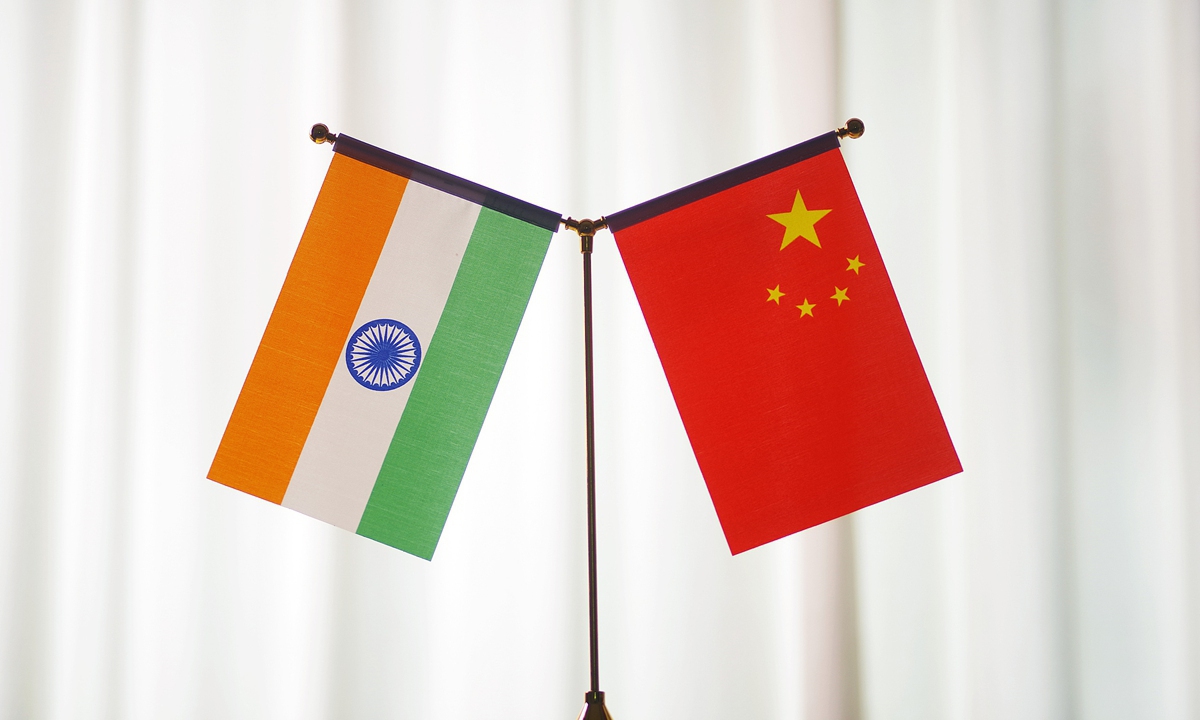
Photo:VCG
China and India should properly manage and control border issues while resuming normal bilateral exchanges and meet each other halfway, Chinese Foreign Minister Wang Yi said on Thursday when meeting with his Indian counterpart. Both sides agreed to hold a new round of talks on the border issues at an early date.
Wang, also a member of the Political Bureau of the Communist Party of China (CPC) Central Committee, made the remarks when he met with Indian External Affairs Minister Subrahmanyam Jaishankar in Astana, Kazakhstan, on Thursday local time.
During the meeting, Wang said that as two ancient civilizations, major developing countries, and emerging economies, both China and India stay at a crucial juncture in their national revitalization. Thus, upholding good-neighborliness and friendship and achieving common development constitute the fundamental interests of both countries and their peoples, and align with the correct historical logic.
According to Wang, both China and India should view bilateral relations from a strategic perspective, strengthen communication, properly manage differences, and ensure that China-India relations develop along a healthy and stable path. Both sides should adhere to positive thinking, properly manage and control the situation in border areas while actively resuming and conducting normal exchanges, mutually supporting each other and meeting halfway, Wang said.
Wang also said this year marks the 70th Anniversary of the Five Principles of Peaceful Coexistence, and both sides have the responsibility and obligation to inherit and promote its spirit, as well as to imbue it with a new meaning in the current era.
As two Global South countries, China and India should join hands to oppose unilateral bullying, resist bloc confrontation, safeguard the common interests of developing countries, and make contributions to the peace, stability and development of the region and the world, Wang said.
During the meeting, Jaishankar said that as two major neighboring countries, China and India face common challenges. Meanwhile, since both sides have extensive common interests, developing stable and predictable bilateral relations constitutes the interests of both sides and will also benefit the region and the world, Jaishankar said.
During the meeting, both sides agreed to endeavor in the stability in the border areas and to hold a new round of boundary negotiations as soon as possible, according to the Chinese Foreign Ministry.
Long Xingchun, a professor at the School of International Relations at Sichuan International Studies University, told the Global Times on Thursday that the agreement to continue negotiations on the border issues shows that the two sides have the willingness to maintain communications and that both are committed to resolving disputes through peaceful means.
However, Long noted that in the past few years, India's China policy and its stance on the boundary issues have remained unchanged, and there are no major adjustments or substantial changes from the Indian side to be seen at present. "India has been demanding that China make concessions regarding the border issues," Long said.
Long added that India has also implemented many restrictive measures against Chinese enterprises, which harms bilateral relations.
India should stop linking boundary issues to the normalization of China-India relations, experts said.




